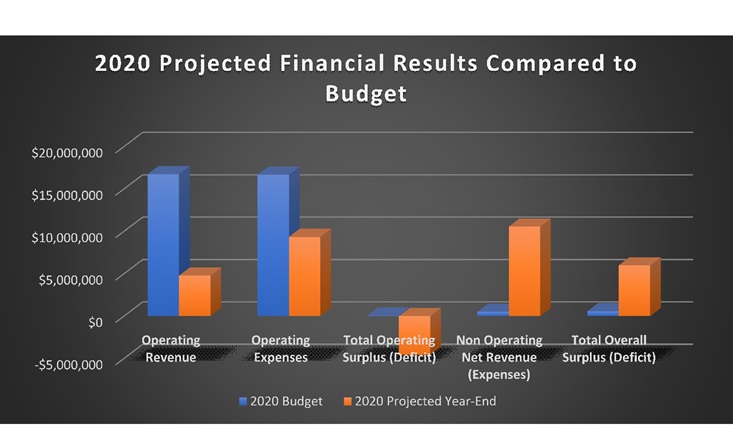Sue Capon
Sue Capon is chief operations officer for ISPOR−The Professional Society for Health Economics and Outcomes Research in Lawrenceville, NJ, and a member of ASAE’s Finance and Business Operations Professionals Advisory Council.

Like many organizations, revenue generation was thrown into turmoil at ISPOR−The Professional Society for Health Economics and Outcomes Research during the pandemic. However, it expects to be reserves-neutral in the coming years. A look at the four-pronged approach it used to keep going.
Pre-Covid, ISPOR−The Professional Society for Health Economics and Outcomes had a global membership of 20,000 and an operating revenue budget of $16.7 million, of which over 75 percent was from live conferences. In 2020, global conferences planned in Orlando, Dubai, Seoul, and Milan were all cancelled as in-person events.
Since membership had been included with conference registration, event cancellation also affected membership and publications revenue (dues transfers). Although we had foundational capabilities, we certainly did not have a suite of digital products robust enough to support the organization. Yet, we anticipate being reserves neutral over the next few years.
Our current status—with multiple transformational initiatives and anticipated event cancellation insurance settlements—gives us a sense of cautious optimism about our financial future, but we are not naïve to the challenges and uncertainties ahead. Here are the four components that helped us respond to 2020’s challenges.
Communications, micro teams, and leadership. In early March, ISPOR established a series of micro teams (see Figure One) to improve internal and external communication processes and avoid duplication of efforts. We used a centralized project file for key documents (e.g., event contracts, critical dates, and so forth). Throughout 2020, we maintained active communications by increasing staff meetings, holding special board of directors and finance committee meetings, and regularly distributing talking points to staff and leaders. Our CEO, Nancy S. Berg, adopted the mantra of “Getting through and beyond,” setting the agenda and expectation not only of responsiveness but also of transformative change.
The following teams were established in early March:
Virtual conferences and digital delivery. Like many other organizations, ISPOR transitioned to virtual conferences, with the first held in May. Over subsequent conferences, we added enhanced functionality, such as ePosters; adapted programs to shorter conference days; and added pre-event on-demand content and new session types. We also began improving exhibitor, sponsorship, and networking opportunities. Our education courses, which had been held at ISPOR’s live conferences, also became virtual with new approaches to scheduling and marketing developed throughout the year. We celebrate the success of what we achieved, continuing to provide opportunities for our members to present, learn, and network. However, the financial impact of these virtual conferences was limited: Both pricing and attendance numbers were at 50 percent or less of our live conferences. This highlighted the need for broader change, including a more diversified event (or content delivery) and education portfolio.
Risk and expenses. Along with the rest of the world, ISPOR searched for those “crystal ball answers” on how the pandemic would impact our programs and developed multiple scenarios, including cancellation with/without contract penalties; with/without ranges of potential insurance payments; and various percentage reductions in registrants and exhibitors. Expenses were reforecast across the organization. The severe reduction of volunteer travel support, staff travel, and costs budgeted for in-person conferences became early expense reductions. Our application for a Paycheck Protection Loan was successful and helped to support our cashflow needs. However, as the year progressed, more challenging decisions needed to be made with staff and salary reductions, contract renegotiations, and delayed or reduced spending implemented in July on several projects.
Ultimately, force majeure was accepted for all events and insurance settlements were offered, but this was not a given at any point during the year, making it important that we balanced financial caution and early decisions, while also managing member expectations and external reputation. Right up to early fall, communications from venues and insurers implied that early-cancellation decisions were business decisions made at our risk. Contingency planning for alternative programs was undertaken and no strategic programs were affected. We realize the value, fortune, and one-time impact of our insurance position. Our operating expenses at the end of 2020 are projected to be at 56 percent of our original budget, and operating revenue at just 29 percent. (Figure Two)
Due to non-operating revenue from investments, event cancellation insurance, a Paycheck Protection Plan loan, and rental income, an overall surplus is projected for 2020, but the impact of COVID on operating results was significant.

Business model and digital strategy transformation initiative. In July 2020, a digital strategy transformation initiative was launched to “define a strategy for digital products and content delivery serving ISPOR’s constituents while also advancing the organization’s business goals and objectives, especially those related to diversification of revenue streams and audiences in the wake of COVID’s impact on in-person events.” The identification of new digital products, and a range of connected initiatives, are significant components of our approach to get “through and beyond,” contributing to the financial health of the society, and therefore the continuance of our mission.